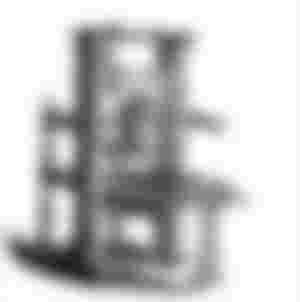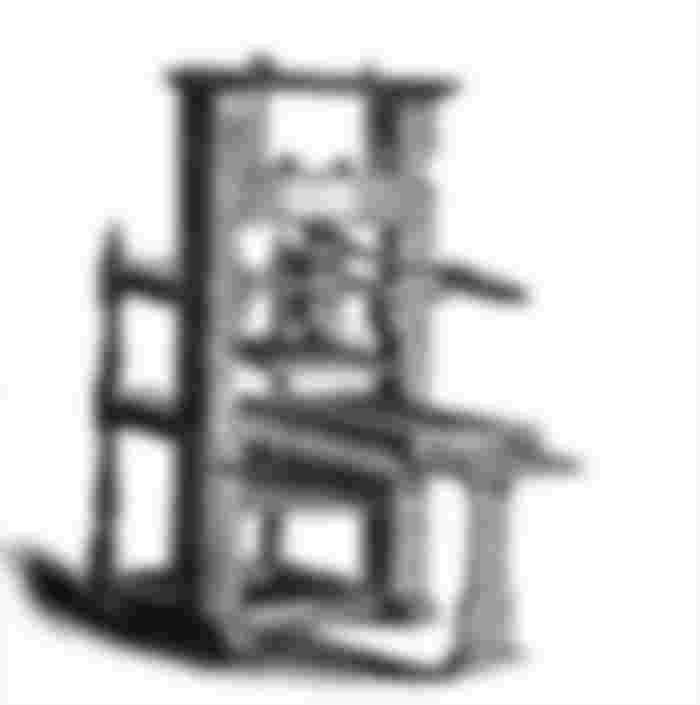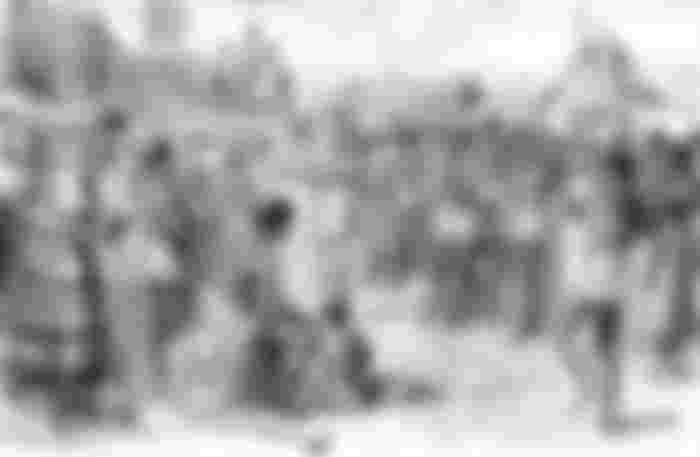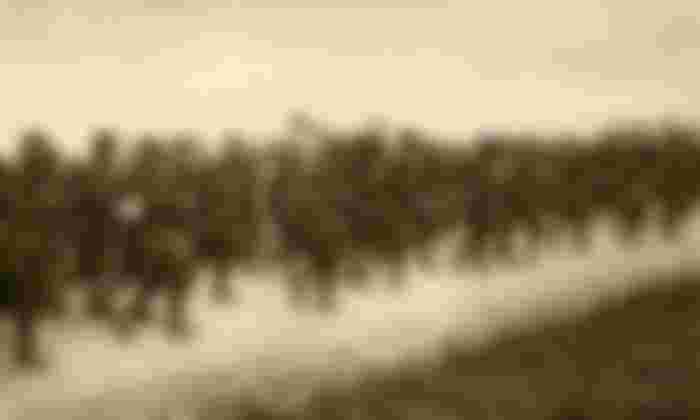10 Historical events that changed the world
3oth of December 2021

World History has always been fascinating and surprising, no wonder history will always be taught in schools and colleges. Unfortunately our college teachers teach history in a very boring way and uninteresting way hence making us lose interest in what really matters. Here are some amazing historical events which I have gathered based on research with the hope that you'd enjoy reading them.
Come along and let's have some fun with history.
1. Athenian Democracy

In 507 BC an Athenian leader introduced the system of Demokratia or “rule by the people”. Whilst a democratic system translate to equality, in 5th century Greece the only people permitted to vote were male citizens over the age of 18 who had completed their military training. According to the leaders women children and slaves were not classified as citizens and therefore could not vote.
A famous Athenian once stated; “it is true that we are called a democracy for the administration is in the hands of the many and not the few with equal justice to all alike in their private disputes”. source
So in Athens a direct democracy developed in which new laws were not passed and old laws were not changed without all eligible citizens voting.
After the Peloponnesian war which was between Athens and Sparta, this form of government seized to continue. Whilst this democratic system only lasted about two hundred years it was the first known democracy in the world and is therefore a noteworthy contribution to the modern world.
2. Gutenberg's printing press

At first glance it might not seem like an invention that changed the world but the 1430’s invention of the printing press proved to be revolutionary. Although woodblock printing had already been invented. it was a tedious method that involved carving individual letters and words and so this method did not catch on.
In fact most of the writings and drawings before the invention of the printing press were painstakingly done by hand so in the 15th century Gutenberg made letters and symbols out of metals and made an ink using linseed oil and salt. He soon developed a printing press where books were mass-produced.
In the year 1454 Gutenberg used his printing press for commercial use and printed many books for the church including the 42 line Bible also known as the Gutenberg Bible. Whilst the public initially frowned upon the new invention, people soon learn that this cost effective and time-effective printing press was beneficial. source
Although this method of inking metal blocks and rolling a sheet of paper over the letters is not used in this century, Gutenberg's invention has definitely paved the way for us and therefore serves as a significant historical event.
3. The Abolition of slavery

On the 25th of March 1807 an act for the abolition of the slave trade was passed in the United Kingdom which was introduced by Charles James Fox. This abolished the slave trade in the British Empire, the act itself prohibited British ships being involved with the trade of slaves and made it illegal to transport enslaved people. Fines were given out if slaves were found to be carried on ships and so captains would sometimes dump slaves overboard when they saw Navy ships in sight. It wasn't until 1833 that slavery became illegal.
After the slavery abolition act was passed, Thomas Clarkson a leading campaign against the slavery trade boarded a slave ship called “fly” and wrote; “the sight of the rooms below and of the gratings above filled me both with melancholy and horror. I found soon afterwards a fire of indignation kindling within me”. source
He also produced drawings as evidence of the barbaric system of human cargo. Surprisingly, John Newton who was a former slave trader and owner later wrote the very famous song amazing grace.
The slave trade act being passed was a very important event in history as it recognized human beings as being equal.
4. The Birth of Christianity

According to the Bible in the year 4 BC, Jesus was born in Bethlehem. I'm sure you're familiar with this story.
Mary was found pregnant through the Holy Spirit, so Jesus was born in a manger in a stable. Shepherds heard about this news from angels that a saviour was born and so they also came to see Jesus. Three wise men followed a star that signalled the birth of the King, bringing with them gold frankincense and myrrh.
Jesus was baptized by John the Baptist in the Jordan River, the event itself is recorded in the Gospels of Matthews, Mark and Luke. It was a significant event as it marked Jesus's entry into his public ministry which began in approximately 27 AD.
In 30 AD Jesus was crucified on the cross outside of Jerusalem under the orders of a Roman prefect called Pontius Pilate. According to the Bible Jesus was laid in a tomb and on the third day he rolled the stone away and was resurrected. From there the Bible is filled with hundreds of stories about Jesus doing good in the world, healing the blind and the crippled, turning stones into bread and water into wine so it’s no question that the Bible and birth of Christianity is a controversial topic. So whether you believe it or not it's an incredible story and one for the books literally.
5. The Cold War

The Cold War began shortly after the Second World War and went from 1945 to 1991. Despite being allies during the war, the two strongest country left standing were the Soviet Union- a communist country and the United States a democratic country. Both sides were vying for dominance, the Soviets started to impose communism on other countries.
In 1947 Harry Truman the US president decided that America would support Greece and Turkey in fighting the Soviets attempts to become communist countries.
So why is it actually called the Cold War? Well despite the US and Soviet Union distrusting each other, they were never fighting in a direct hot war until 1991. Now Germany became divided into two countries; East Germany which became a communist country and West Germany which was democratic.
In 1961 a barrier was built to prevent people from leaving East Germany. After barbed wire was unsuccessful in keeping people up, a 12 feet high and 4 feet wide concrete wall was built, in fact guard towers were placed along the wall and guards were ordered to shoot anyone trying to escape.
Finally in 1987 Ronald Reagan the President of the United States at the time order the Soviet Union leader Mikhail Gorbachev to tear down the wall. After the wall was tore down in 1990 Germany was officially reunified as a single country. source
6. The Black Death

The black death was one of the most catastrophic pandemics in history. While numbers are not definite, there was an estimated 75 to 200 million deaths in Europe. Clearly, without the proper vaccinations and poor hygiene, this disease spread like wildfire.
So how did it all begin? After twelve ships travelled through the Black Sea, they arrived in Europe- Rats and humans carrying with them the deadly disease. In 14th century Europe it was perfect breeding ground for the Black Plague, poor hygiene, dirty streets, infected fleas and rats all meant that the disease was carried through to city after city.
So what exactly was it like having the Black Death? It was a horrible painful disease with black swellings forming in the victims groin, neck and armpits which oozed out blood and pus. Symptoms also involved chills, headache, fever, pain, shock and weakness. It usually took two to seven days for the victim to die which was often a slow and painful experience.
Nowadays it is referred to as the Bubonic plague and most patients will get the proper treatment to be healed. source
But how do people react to this rampaging disease in the 14th century? Well people closed their homes, burnt down houses and even whole cities but most of the time it was futile. The black plague killed animals such as chickens, cows, sheep, goat, and pigs.
It was so contagious that doctors didn't want to see patients, shopkeepers didn't want to attend to customers, and priests didn't wanted prayer over the dying. Many people were convinced that the black death was a punishment from God as though thousands of Jews were massacred in the years 1348 and 1349. The Black Plague had finished its outbreak in the 1350’s but it remains one of the world's deadliest and most devastating pandemics in history.
7. Apollo 11

On July 20 1969, the space flight Apollo 11 successfully landed on the moon. The crew onboard Apollo 11 were Neil Armstrong the commander, Buzz Aldrin the lunar module pilot and Michael Collins the command module pilot.
In 1961 the President of the United States John. F. Kennedy said in a speech addressing the US Congress; “before this decade is out, of landing a man on the moon and returning him safely to the earth”.
This goal was well and truly achieved but there are still sceptics who are convinced that NASA conducted a hoax.
The mission to the moon and back took exactly eight days, three hours, 18 minutes and 35 seconds. The landing of the Apollo 11 is such a significant event that you're probably so familiar with the phrase “that's one small step for man one giant leap for mankind”. However, during a 30th anniversary for Apollo 11, Armstrong claimed that he had actually said “that's one small step for a man”. Whatever he said is a phrase that would go down in history.
8. The Industrial Revolution

It was a period of time from the 18th to the 19th century. The Industrial Revolution was the transition to new manufacturing processes where rural areas in Europe and America became industrialized. Before this time people living in rural societies generally farmed and grew their own food, made their own clothes and made their tools by hand. When new and effective machines were invented, this caused a lot of people to be out of work.
Sir Richard Arkwright invented the spinning machine that turned raw cotton into thread, the steam engine was also developed by a man named Thomas Newcomen in the year 1712 which proved to be integral to transportation. Soon steam powered ships were being used to transport goods and materials. In addition, in 1866 a telegraph cable was laid across the Atlantic which allowed for more effective communication.
But what was the quality of life like for people living amongst this revolution? Job opportunities opened up for people and factory produced goods were developed and sold thereby raising the living standards. However, factory conditions were poor with the profit seeming to be more important than health and safety.
People also wanted to move to the city closer to their work, and so cities became overpopulated and there was a shortage of accommodation. Streets became littered with rubbish and black smoke from factories filled the air. This became perfect conditions for diseases to spread such as cholera, typhus, smallpox and dysentery. Nevertheless, the Industrial Revolution was a pivotal time in history that introduced a whole range of manufactured products.
9. World War 1

World war 1- also known as the Great war. There’s a lot that can be said about World War 1 but let's just keep it simple. The war itself occurred between 1914 and 1918, and resulted in millions of casualties and deaths.
So what actually caused World War 1 to start? Well, one of the main events that ignited the Great War was the assassination of Austrian Archduke Franz Ferdinand. The assassination was carried out by a terrorist group called “the Black hair”, although it seems quite dramatic that one person's death resulted in a global war, but this is actually what happened following the assassination- Austria declared war on Serbia, Russia then defended Serbia, Germany declared war on Russia in the hope to protect Austria, France declared war on Germany to protect Russia, Germany invaded Belgium and so Britain declared war on Germany.
Now we can see with the virtual demonstration the countries which were allies with each other, if only all the countries were allies the war wouldn't have happened, but this is just how it started.
So who actually fought? Basically, there were two main groups- the Allied powers France, Russia, Britain and later the U.S. against the Central Powers- Germany. Austria, The Turkish Empire and Bulgaria. Finally, after four years of conflict the war ceased on November 11, 1918. The treaty of Versailles was signed which entered the war between Germany and the Allied powers.
10. World war 2

The second world war occurred between 1939 and 1945, it was so widespread across the world that 30 countries and 100 million people were directly involved with the conflict.
First of all how did world war 2 begin? Well, it all began with a very infamous man named Adolf Hitler, he led a political group called the National Socialists or more commonly referred to now as the Nazis. As the leader Hitler chose to seize land from nearby countries, the main event that caused the war to begin was the German invasion of Poland.
On the third of September 1939, the Prime Minister of Britain Neville Chamberlain declared war on Germany. Hitler refused to abort his invasion of Poland and so France also declared war on Germany. In 1940 Germany, Italy and Japan signed the tripartite pact thereby creating the axis alliance, they were fighting against the allies which basically included the rest of the world.
In 1941 Japan bombed the US Navy and Pearl Harbour, and so the United States became heavily involved in the War from the years 1941 to 1945. Jews were murdered in one of the largest genocides in history. source
In addition to the 6 million Jews killed, communists, Jehovah's Witnesses, people with disabilities, Soviet prisoners of war, Catholics, Polish people, homosexuals and gypsies were also victims. The Jews were relocated to concentration camps where they would do hard labour in poor conditions and many people were killed in large gas chambers.
In May of 1945, Germany finally surrendered after Hitler had committed suicide thus resulting In the end of the second world war.
This list is written based on personal research and may not necessarily be the top 10 historical events that changed the world. I could not include every single historical event but simply highlighted a few out of the many events in history. Some important events that were omitted includes the rise of the Roman Empire, the birth of Islam, the Reformation, 911 attacks, the American Revolution and so on.
All images used above have been sited











What an informative article you have Kristoff. Our country is also a democratic country.